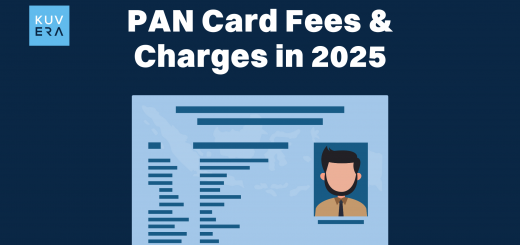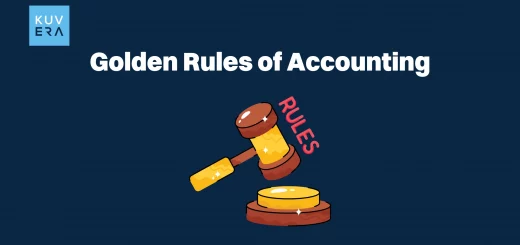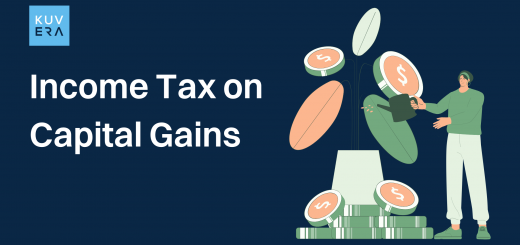Savings and investment are not the same thing. Savings is that portion of your income that you do not spend. Whatever is left of your income after all your expenses are your savings. Whereas, investment is that part of your savings used for further production or income. In simple terms, investment is a subset of savings that generates revenue.
So, if you invest money in the stock market, it’s your investment. But, if you keep money in your bank account, it’s savings.
From savings to investment – Why just saving isn’t enough?
Simply having savings isn’t enough for effective investment. Savings remain idle and are not used to generate more income. Savers are risk-averse, so they keep their money in bank deposits and government bonds with potentially low returns.
There are cases where savings may not be efficiently transformed into investments due to uncertainty about the future. It could be political instability like the economic mismanagement in Venezuela since the early 2000s. Even developed economies like Japan fail to convert savings into investments because of the ageing population.
In economies with high inflation, the real value of saved money depreciates quickly. This creates a negative impact on both savings and investment. In the late 1990s, Zimbabwe engaged in excessive printing of their currency. The supply of goods and services could not keep up with it and prices increased. There was a hyperinflation crisis and the people of Zimbabwe lost their purchasing power.
Therefore in this day and age, saving money just isn’t enough.
Savings and Investment Patterns
Before studying the different cases, let us have a look at the savings and investment patterns from the National Stock Exchange from September 2019 to January 2023.

Savings and investment do have a positive relationship. If there is an increase in savings, those savings are channelled back into the economy as investments. Banks lend more money due to increased savings. So, interest rates are high and eventually, there is a rise in investments. After the financial crisis of 2008, countries saw an increase in both savings and investments as the economies stabilised. Households gained confidence in their economy. They saved more and invested in booming businesses.
The second scenario is when savings increase, but investments are either stagnant or decrease. This happens when there is a period of economic uncertainty. You save more as you are uncertain about the future. But, you are hesitant to invest in businesses because of unpredictable conditions. During the early stages of the COVID-19 pandemic, this pattern was prevalent.
Or a different case, where savings decrease but investment increases. This can happen when there is high consumer confidence and easy credit options. Hence, you spend rather than save. But since credit is easily available, you invest from external funding sources. Businesses follow the same trend and invest from their retained earnings. During the dot-com bubble in the late 1990s, the USA also followed a similar pattern in savings and investment.
If an economy falls into a recession and is going through severe economic downfall, their income is unstable, so households end up cutting on saving and spending. Investments fall drastically due to falling savings and decreased consumer demand.
Investing for beginners
Investing can seem overwhelming for beginners, but it’s a great way to build wealth over time. The first step is to understand the different types of investments, such as stocks, bonds, mutual funds, and real estate. It is also important to learn about risk and reward, diversification, and long-term goals.
Why equity markets have the highest wealth generation potential
You as a retail investor can maximise your returns by in equity markets. Investing in equities means that you buy shares of a company. And as the company grows and becomes profitable, investors i.e., you benefit from increased stock prices and dividends. And over long periods, this growth compounds, potentially leading to faster wealth generation.
Investing in equities provides a hedge against inflation. Over time, as the cost of goods and services increases, so do the revenues and profits of companies. Hence, the real purchasing power of investment is safe.
Why index funds are the best for retail investors
Index funds are a pool of diverse funds that follow an index. So, if you are investing in index funds, you automatically have diversification across many securities. Plus, they typically have lower fees than actively managed funds, since they are passively managed.
Many studies have seen that over long periods, most actively managed funds fail to outperform their benchmark indices. So if you are a retail investor, who may not have the time to manage your savings and investments, index funds can be the best option for you.
What to know more about Index Funds? Click here.
FAQS
Is savings the same as investing?
Savings and investments are not the same. Savings are the money set aside for future use, while an investment is the money that generates income or capital appreciation over time. Investments often carry a level of risk and require some level of expertise, while savings are generally considered to be lower risk and easier to manage.
What is better, investment or savings?
Both investment and savings are important aspects of building wealth, but they serve different purposes. Savings is the process of setting aside a portion of income for a rainy day, whereas investment involves using money to generate returns. The better option depends on your financial goals and risk tolerance. If you have short-term goals, savings might be better as you can access the funds quickly. On the other hand, if you have long-term goals and a higher risk appetite, investing could be a better option as it has the potential to generate higher returns.
Is investing more risky than saving?
Both investing and saving have risks and uncertainties. Saving has the risk of losing purchasing power due to inflation, on the other hand, investing carries the risk of losing money due to market fluctuations and company performance. However, diversified mutual funds can potentially offer higher returns over the long term.
Why do people fail to save?
There are several reasons why people may struggle to save money. It could be a lack of financial education, difficulty in creating a budget, high levels of debt, unforeseen expenses or low income. It is also common for people to prioritise spending over saving, especially if they don’t see the immediate benefits of saving.
Interested in how we think about the markets?
Read more: Zen And The Art Of Investing
Watch here: Understanding Index Funds | Expert Insights for Smart Investing
Start investing through a platform that brings goal planning and investing to your fingertips. Visit kuvera.in to discover Direct Plans and Fixed Deposits and start investing today.













